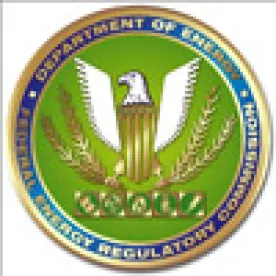Movants must clear high hurdle once parties reach settlement in principle.
On March 9, the Federal Energy Regulatory Commission (FERC) issued an order in Maritimes & Northeast Pipeline, LLC (Maritimes Order) rejecting a movant’s attempt to intervene in the final stages of an ongoing proceeding, in large part because granting party status “would seriously disrupt the proceeding, place unwarranted burdens on the active parties, and prejudice the interest of the settling parties.”[1] FERC also expressed concern that granting the late intervention would “undermine the Commission’s policy of encouraging settlements as an effective means of resolving cases.”[2]
In Maritimes, FERC confirms the standards applicable to its review of untimely motions for leave to intervene and the Commission’s intent to apply “the strictest possible scrutiny” to any request filed after parties have reached a settlement in principle.[3] As explained below, the Maritimes Order serves as a useful reminder for all practitioners appearing before FERC in either Natural Gas Act (NGA) or Federal Power Act proceedings to make every effort to timely file interventions or risk being excluded from a proceeding.
Procedural Background
On May 29, 2015, Maritimes & Northeast Pipeline, LLC (Maritimes) filed a general Section 4 NGA rate case. On June 10, 2015, numerous parties filed timely interventions in the rate case docket, and on December 10, 2015, the pipeline announced that the active parties (including FERC Trial Staff) had reached a settlement in principle.
The Maritimes Order stems from an attempt by two entities—Liberty Utilities Pipeline & Transmission Company and Algonquin Tinker Generation (collectively, Liberty Affiliates)—to intervene in the pipeline rate case docket more than six months after the due date for timely interventions. The Administrative Law Judge (ALJ) granted Liberty Affiliates’ motion for late intervention over vehement objections from Maritimes, FERC Trial Staff, and several other active participants, concluding that any claims of prejudice were general in nature[4] and that “denying intervention would contradict the Commission’s policy in favor of transparency because it would ‘deprive Liberty Affiliates the opportunity to submit presumably meaningful comments to the Commission.’”[5] Maritimes and FERC Trial Staff both filed separate motions for interlocutory appeal of the ALJ’s decision to grant the untimely interventions. In the Maritimes Order, FERC granted the interlocutory appeals and denied the request for late intervention.
Liberty Affiliates’ Interest
Maritimes and its affiliate Algonquin Gas Transmission LLC (Algonquin) have proposed a new project (the Atlantic Bridge Project) designed to transport gas north to interconnect with the southern end of the Maritimes system. Liberty Affiliates are investors and service providers for the Tennessee Gas Pipeline Company (Tennessee) system. Tennessee also has a proposed new pipeline project (Northeast Energy Direct Project) that will compete with the Atlantic Bridge Project.
In various pleadings filed with the ALJ and with FERC, Liberty Affiliates argued that although they are not shippers on the Maritimes system, late intervention was a product of Liberty Affiliates’ belief that Maritimes and Algonquin were coordinating across several related proceedings to tie firm primary path back haul service on the Maritimes system to taking service on the Algonquin system and/or the Atlantic Bridge Project. Liberty Affiliates expressed a concern that Maritimes’ actions in its rate proceeding, together with the Atlantic Bridge Project certificate proceeding, would allow Maritimes the ability to favor gas delivered into the Maritimes system from its affiliate over gas delivered into its system from Tennessee.
The Maritimes Order
Reversing the ALJ, FERC rejected Liberty Affiliates’ request to intervene out-of-time. In doing so, FERC found that Liberty Affiliates failed to comply with the applicable FERC standard governing untimely interventions and that existing precedent did not support granting Liberty Affiliates’ request.
Under Rule 214(d) of its Rules of Practice and Procedure, FERC weighs the following factors when determining whether to grant an untimely filed motion to intervene:
(i) whether the movant had good cause for failing to file the motion within the time prescribed;
(ii) whether any disruption to the proceeding might result from permitting the intervention; and
(iii) whether any prejudice to or additional burdens upon the existing parties might result from permitting the intervention.
FERC found that Liberty Affiliates did not demonstrate why they could not have intervened earlier in the proceeding, well before the parties reached a settlement in principle. Additionally, Liberty Affiliates did not justify why they could not have been aware of any potential impact that the Maritimes rate case may have had on their interests by the time timely interventions were due on June 10, 2015. Based on this same reasoning, FERC also rejected Liberty Affiliates’ argument that a Maine PUC proceeding “aroused Liberty Affiliates’ suspicion that Maritimes may have an incentive to give undue preference to its own affiliates.”[6]
FERC also found that because Liberty Affiliates waited until after a settlement in principle had been reached before filing to intervene, Liberty Affiliates intervention would “seriously disrupt the [Maritimes] proceeding, place unwarranted burdens on the active parties, and prejudice the interests of the settling parties.”[7] FERC agreed with FERC Staff that each day of delay in the proceeding prevented settling parties from taking advantage of the “substantial and tangible benefits”[8] provided by the settlement agreement.
Finally, FERC stated that its policy of encouraging settlements as an effective means of resolving cases would be undermined if Liberty Affiliates were allowed to intervene at this stage of the proceeding.
Lessons Learned From the Maritimes Order
On its face, the Maritimes Order is a rote application of Rule 214 and the factors set forth therein. However, a closer look reveals several takeaways that merit emphasis:
-
Don’t wait too long to act. FERC will apply a stricter standard of review to requests for late stage interventions because the risk of prejudice to timely participants increases. “The Commission is more liberal in grating late intervention at the early stages of a proceeding but is more restrictive as the proceeding nears its end.”[9]
-
Ignorance is not bliss. A movant cannot expect to be granted late intervention merely because the movant was unaware of the proceeding in a timely manner or because the movant did not have an interest in the proceeding until sometime after the intervention deadline. FERC stated that Liberty Affiliates was not permitted to intervene only after “waiting for another entity to raise concerns about Maritimes’ behavior,” and that “[i]nterested parties are not entitled to hold back awaiting the outcome of the proceeding, or to intervene only when events take a turn not to their liking.”
-
Intervene in the right docket. FERC will be mindful of attempts to disrupt proceedings in unrelated dockets. In the Maritimes Order, the Commission noted that it would be more appropriate for Liberty Affiliates to raise their concerns of undue preference in the Atlantic Bridge Project certificate proceeding or to file a complaint at FERC.[10]
-
When in doubt—file an intervention. Providing guidance to practitioners going forward, FERC advised that one is best served by intervening early, even if the movant is unsure of how involved it will later become. FERC counseled that interested parties are expected to intervene “as early as possible whether or not they had yet decided the extent of their participation rather than wait until they can better articulate their interest.”[11]
Finally, we caution FERC practitioners that the Commission appears to be taking a closer look at out-of-time interventions and lately have been rejecting untimely interventions on a more frequent basis. Recently, FERC rejected out-of-time interventions in several proceedings after determining that the movant failed to satisfy the standard set forth in Rule 214. Indeed, in a recent rate proceeding involving proposed changes to Tallgrass Interstate Gas Transmission LLC’s tariff, the Commission summarily denied American Forest and Paper Association’s (AFPA) untimely intervention because AFPA’s “broad statement that its members are ‘end-users’ of natural gas” did not demonstrate that its members had a direct interest in litigation specific to Tallgrass’s system.[12] AFPA filed its out-of-time motion to intervene on November 24, 2015, almost a month after the October 30, 2015 deadline FERC set for movants to properly submit interventions in the proceeding.
Following the Maritimes Order, FERC practitioners can expect FERC (and contesting parties) to scrutinize late interventions with more regularity and, thus, need to be mindful to carefully comply with FERC’s regulations and its pronouncements in orders such as the Maritimes Order. Entities seeking to intervene out-of-time need to pay close attention to the rationale and purported justification set forth in the motion on a going-forward basis.
[1] Maritimes & Northeast Pipeline, LLC, Order Granting Interlocutory Appeal, Denying Intervention, and Approving Settlement, 154 FERC ¶ 61,182 at P 37 (Mar. 9, 2016) (Maritimes Order).
[2] Id. at P 28.
[3] Id. at P 32.
[4] Id.at P 9.
[5] Id. at P 17.
[6] Id. at P 36.
[7] Id. at P 37.
[8] Id.
[9] Id. at P 33.
[10] Id. at P 39.
[11] Id. at P 34 (internal quotations omitted).
[12] Tallgrass Interstate Gas Transmission, LLC, 154 FERC ¶ 61,071 (Feb. 1, 2016).





 />i
/>i

